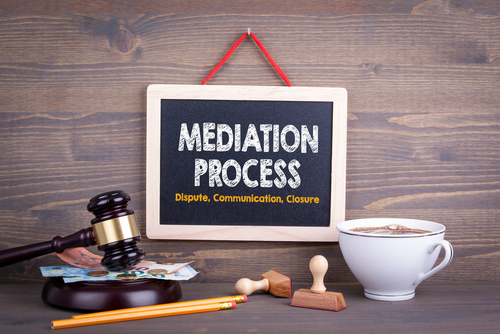Mediation And Marriage: Finding Common Ground In Divorces
By reputation, divorces can often be bitter and contentious. But this is not always the case. While they are stressful and painful times for a family, not all divorces need to be hostile and antagonistic. The proof is the existence and use of mediation, which allows spouses to meet face-to-face and do their best to […]

By reputation, divorces can often be bitter and contentious. But this is not always the case. While they are stressful and painful times for a family, not all divorces need to be hostile and antagonistic. The proof is the existence and use of mediation, which allows spouses to meet face-to-face and do their best to meet in the middle on the issues that need to be resolved. This can help a family avoid the stress, time, and costs involved with a full trial and allow both sides to find their new normal as soon as possible. Here is what you need to know about divorce mediations in New Jersey.
Court Mandated Mediation In New Jersey
New Jersey law allows for a family law judge to order what is known as court-mandated mediation. The idea is to help families solve their issues outside of a courtroom setting, saving time and money. The court can order mediation for either child custody and parenting time issues, economic issues, or both.
If ordered into mediation for custody issues, the court will set up a time with a New Jersey court-appointed mediator to help resolve their issues. This type of mediation is attended without attorneys present and allows both sides to express their opinions and concerns in a safe setting with a neutral professional to help the process along. The mediator’s job is to give each person the opportunity to have their say and help both find common ground for the best interest of their children. These sessions are confidential and non-binding. If the parties do come to an agreement, the mediator will draft an outline for a custody and visitation schedule. They will then send a copy to each side to allow their attorneys to view it and each parent to sign off on it to make it legal. Then, the agreement can be taken to the judge to become final.
The second type of mandated mediation is for economic disputes. A different mediator specializing in financial issues will oversee the proceedings, which are also confidential and non-binding. Due to the complexity of financial matters, each party usually has an attorney accompany them to the mediation and prepare documents to emphasize their points. The mediator will then hear each side and attempt to urge the parties to an agreement, which can then become formal and binding when signed by the parties and the judge.
Private Mediation
While mediation can be court mandated, you don’t have to be ordered by judge to enter into it. Private mediation between spouses is also a possibility. Instead of waiting for a judge to order it, the parties can agree to hire a private mediator at any point during the divorce process to help facilitate and draft an agreement for both custody and economic matters. Just like court mandated mediation, private mediation is confidential and non-binding, but you can have a lawyer present with you no matter what issues you are discussing.
Benefits of Mediation
The mediation process allows the opportunity for spouses to settle their issues in less time and for less money than a full trial would demand. Discovery (evidence gathering) is also limited in a mediation, which reduces the amount of time lawyers would need to give to a case and cut down on legal costs. Most importantly, mediation is a way to eliminate the adversarial nature of a full court trial, encouraging cooperation between the parties and allowing for a customizable divorce agreement that best suits everyone involved.
Contact A Family Law Attorney for a Consultation About Your Divorce Today!
If you are thinking about filing for divorce, or if you have already started the divorce process and are dealing with another matter such as child custody, child support, or division of property, you need to speak with a qualified attorney. The New Jersey family law attorneys at Davis & Mendelson represents clients in Camden County, New Jersey. We understand how challenging this time can be for you, which is why we will fight hard to protect your interests, and the interests of your loved ones, throughout the legal process. Call us at 866-560-9512 or fill out our confidential contact form to schedule a consultation. We have an office conveniently located at 1200 Laurel Oak Road, Suite 101, Voorhees, NJ 08043.
The articles on this blog are for informative purposes only and are no substitute for legal advice or an attorney-client relationship. If you are seeking legal advice, please contact our law firm directly.
